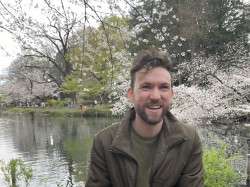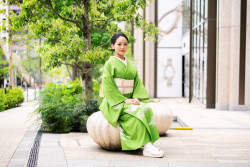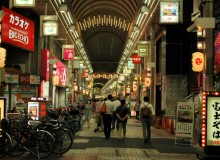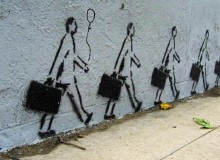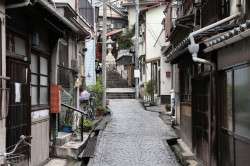
Originally published on metropolis.co.jp on July 2013

This is the fifth installment in our series of Tohoku stories from Amya Miller that focuses on the families, friends and neighbors rebuilding their lives and community.
Teiichi Sato is a man who looks like he chops down trees in his spare time. He’s a man of nature. Barrel-chested, with salt-and-pepper hair flying in all directions, he’s the local Alpha Male. Here is one of the victims-turned-survivors from the tsunami that wiped away the city of Rikuzentakata—his store and home included.
Sato will be the first to admit his mind did not belong to him for a month after the tsunami took away everything he owned. “I wasn’t myself. I didn’t know what to do. My mind? It was white, like that screen on television, black-and-white static. I had nothing.”
But today, he is the proud owner of a new store selling just seeds and seedlings. How anyone can stay in business when competing with the giant box-stores selling the same for less is a mystery to me. I don’t ask questions. He tells me his income is “less than what most people make around here,” but this doesn’t seem to bother him. He personifies stubbornness; a fierce will to live and a commitment to survival. The hostility he showed to his customers two summers ago when he was working through his post-trauma grief is all but a memory.
“I wanted to get this story out from inside me. That I rebuilt this store, if you can call it that… that I rebuilt it from scraps of debris I found all over town. That I rebuilt my store shows people here that even someone regular like me can start over. That even someone like me—who lost everything—can still live. I wanted to get this story out, but it was too painful to write it in Japanese.” I nod as I listen.
“So I wrote it in English,” he adds, as if this is no big deal. Then comes the shocker. “But I don’t speak, read or write English,” he laughs. “So, I looked up words in the dictionary one after the other, and then started putting them together, not knowing at all whether it was correct.”
But why would a man try to write a book in a language he doesn’t know? “It’s hard to write words like ‘dead bodies’ and ‘coffins’ in Japanese. In English, they’re just words. In Japanese, these same words are emotionally charged,” explains Sato. “Dictionaries are really helpful,” he continues. “Get a native speaker to check your work, and—” he claps his hands. “Just like that, you’ve gotten out what was pent up inside. That’s really all I did.”
Through his book, Sato personifies the spirit of plowing through dirt and muck, literally and figuratively. It’s hard not to like and respect this man and what he’s done. He’s blunt, and doesn’t mince words. He shoots from the hip and shrugs off those who just don’t get him. The point is: he did it. He took an idea, something no one would dare think of doing and made it a reality.

“I called the book The Seed of Hope in the Heart. I sell seeds, right? I’m selling a different kind of seed through this book. I’m trying to plant this idea in peoples’ hearts that we can recover. Something like this will happen some day in another part of Japan and another part of the world. I’m trying to get people to understand, to believe that we can get through even the most unreal, toughest part of what a disaster leaves behind.”
The result is a short book revealing grief and hope in ways only this remarkable man can capture. I won’t spoil it for you. This is a true, first-hand account of a victim who turned himself into a survivor out of sheer will. Read it and weep—as many have.
The Seed of Hope in the Heart; ¥1,800 (includes seeds!)
Email amya@vigorjapan.com to order a copy.



